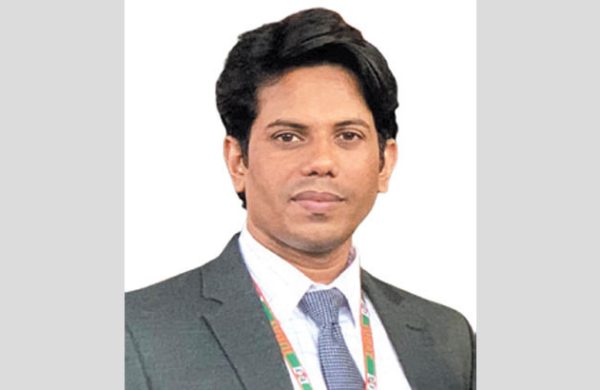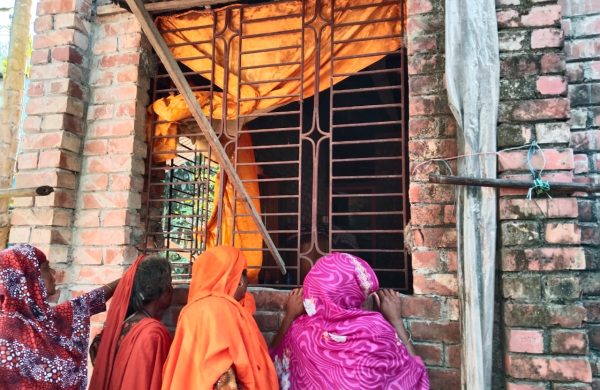A Bengali’s Experience of America’s Presidential Debates
- Update Time : Monday, July 1, 2024

—Syed Badrul Ahsan—
I was not around to listen to Abraham Lincoln and Stephen Douglas engage in debate over critical issues facing America in the late 1850s. Neither did I have a grasp on politics when Richard M. Nixon and John F. Kennedy took part in a series of debates before the US presidential election in 1960. I was too young to know that there was a country called America, that there were men who were Presidents or had ambitions of being President.
But, yes, a time came when I went through the details of the Lincoln-Douglas debates and then through the history of the American civil war of the 1860s. And in these days of helpful technology, I have cheerfully gone back to television footage of the Kennedy-Nixon debates of 1960. And since 1976, my interest in American politicians debating one another on issues of grave import to the public has regularly led me to watching men seeking power appearing on stage to respond to questions of what they plan to do if and when they are elected to high office in Washington.
Why 1976? Because it was the year when Gerald Ford and Jimmy Carter, with their focus on the US presidential election in November of that year, agreed to debate each other in public, meaning on radio and television and before a live audience. For the first time after 1960 presidential debates were being revived in America. Lyndon Johnson did not debate Barry Goldwater in 1964; and in 1968, Richard Nixon, clearly unwilling to relive his 1960 experience, did not respond to Hubert Humphrey’s calls for a debate on a whole host of issues. In 1972, no one spoke of a Nixon-McGovern debate.
But 1976 was different. Here was Gerald Ford, holding office as US President following Richard Nixon’s resignation in the aftermath of the Watergate scandal; and there was Jimmy Carter, a rather obscure politician who had nevertheless served as Governor of the state of Georgia and was in the family peanut business. Carter had written a book, ‘Why Not the Best?’ which was an account of his presidential ambitions. He left every other Democrat, all well-known figures, way behind in the primaries to gain the party nomination and challenge the Republican Ford at the election scheduled for November.
My friend Shah M. Hasan and I — and other friends — being regular visitors to the American Cultural Centre in Dhanmondi, were privileged to watch the Ford-Carter debates at the centre. It was a revealing experience for us. It was also America’s bicentennial year, which was pretty important for me since I took part in a quiz competition, won it and went home with a rich prize, a collection of Saul Bellow’s books. About the US presidential election that November, we friends had already made it obvious where we stood. Had we been American citizens, we would have voted for Carter. When Ford made a gaffe — he said that there was no Soviet domination of Eastern Europe and that there would never be under his administration — and that at a time when Leonid Brezhnev was in full control of communist Eastern Europe — we knew the President had lost the election. And he did.
It was a debate which educated us on the imperative for politicians and common citizens alike to be well-versed on the issues. Carter’s triumph made us happy, but four years later, battered by a bad economy and the Iran hostage crisis, the President did poorly against Ronald Reagan. Known for his humour and quick repartee — ‘there you again’ was a Reagan response to Carter during the 1980 debate which brought down the house — the Republican challenger gave every impression that he was on his way to being America’s next President and that the good, well-meaning Carter would soon be a one-term President. Carter lost and Reagan went on to serve as President for two terms. He regaled the audience during his debate with Walter Mondale in 1984. He said that he would not exploit for political purposes the youth of his rival.
That was Reagan. No other President before or since has deployed so much of wit and humour to connect with people. However, every later presidential debate, beginning with the era of George H.W. Bush, remained focused on serious national and global issues. In 1992, Bill Clinton was a powerful challenger to President Bush. He had his unique way of engaging with the audience in the course of his debate with the President. He looked into the eyes of the individuals in the audience, heard them out on their problems and came forth with his responses, which had substance in them. At a point, Bush made the mistake of looking at his watch, giving people the impression that he clearly wished to see the debate come to an end so that he could move on. It was a blunder. Impressions matter. Bush lost to Clinton.
I have not missed watching any of the US presidential debates since 1976. A moment I remember, and so do so many others, is one when George W. Bush, while making a point in a 2000 debate, noted his rival Al Gore approach him and nodded in what was clearly a paternalistic way. It was a natural act on his part, spontaneous certainly. It made the audience break into laughter. Bush went on to be inaugurated as America’s President, though questions have continued to swirl around the idea of the election having been stolen from Gore by the US Supreme Court when it stopped the counting of the hanging chads in Florida and declared Bush as Clinton’s successor.
Other presidential debates have been remarkable, mostly, for the way they projected images of the individuals seeking the White House. Barack Obama was brilliant in his arguments against the gentleman-politician and Vietnam veteran John McCain in 2008 and Mitt Romney (whose father George Romney had wanted to be President in 1968) in 2012. Hillary Clinton demonstrated in the 2016 debates with Donald Trump that she was admirably qualified to be President. But a changed America placed Trump in the White House. In 2020, Joe Biden did well against Trump in the debates, clearly revealing his grasp of the issues gained through years of experience as a Senator and Vice President.
And the latest debate between President Biden and former President Trump? Age has certainly caught up with Biden. He was not in his best form, for he seemed to be fumbling and trying to remember what he meant to say. His voice was weak, but despite such weaknesses, he knew his facts. There was substance in his arguments, a point which was gravely missing in his challenger. Trump had little of ideas and much of invective coming into the debate. It was a debate unlike any other. Much anger, a plenitude of personal attacks, a bagful of lies took away the charm one had expected from this debate.
It was a depressing spectacle. It was reason for me to go back to thoughts of earlier American presidential debates, to remembering the politeness and mutual respect upheld by the candidates in those debates. I am not quite sure how many more presidential debates I will have the good fortune to watch, given that age is fast catching up with me. But I do know that all these debates have been an opening of doors to some fascinating ideas on modern American politics.
Have you noticed that this American trend of presidential debates has led to similar politics being played out in other nations? The Rishi Sunak-KeirStarmer debates in Britain are an instance. In 2022, Emmanuel Macron and Marine Le Pen clashed on the issues on French television for nearly three hours.
______________________________
Syed Badrul Ahsan writes on politics, diplomacy and history



















